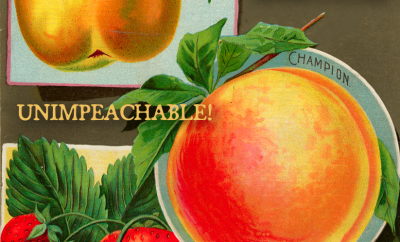
News
Memes and Selfies: Internet Trends Bring New Copyright Issues
Memes are fun–they’re customizable, shareable, and all over the internet. But they do bring up some important questions about copyright laws and photo ownership. For example, many of you have probably seen the “confused face girl” meme that has gone viral all over social media. While most people find this meme utterly hilarious, a news story spread last week that the “face” of the meme–a girl named Keisha Johnson–wasn’t laughing. In fact, she supposedly tried to sue Instagram for $500 million for copyright infringement and defamation because people keep using a picture of her posted on Instagram as a meme. This story ended up being a fake, created by the satirical news outlet OD Gossip, but news organizations who didn’t know any better still picked it up.

Thanks Hundike
Here were the made-up details of Johnson’s legal battle:
The 16-year-old Alabama native was just hanging out with her friends when one of them took a bad photo of her and uploaded it to Instagram. Almost instantly, the photo went viral and was shared on millions of profiles, including those of celebrities. In addition to turning the photo into a meme, people everywhere have been posing for their own “confused face” photos in apparent attempt to mock Johnson. Clearly embarrassed by the photo, Johnson said, “my face looked ugly like I was about to throw up. I look nothing like that in real life… I’m really a bad b*tch!”
While this made-up girl named Keisha Johnson did not, obviously, sue Instagram for $500 million, the story and resulting press attention got me thinking: what would happen if someone were to actually sue Instagram? Well, according to the Instagram terms and conditions that every user must agree to before they sign up for the social media site, people who use the network are responsible for the content that they choose to share. Now in fairness, in the hypothetical story, Johnson was not the one who posted the photo. However, according to the terms, her friends would have been 100 percent responsible for choosing to embarrass their friend. So hypothetically, if the girl in the photo were to sue someone, it’s her friends who are responsible for deciding to post a bad photo of her, not Instagram.
The site OD Gossip also released another fake story about another fake lawsuit–this time over a selfie that was turned into a meme. According to OD Gossip, “Makayla Edwards,” known more commonly as the topless boy/girl face a** meme, has also decided to file a defamation lawsuit against Instagram. Just like the story about Johnson, this is a hoax, but there have been millions of photos posted to people’s Instagram accounts making fun of the meme. The photo has also popped up on sites like Facebook and Twitter.
Now as previously established, the fake “Makayla Edwards” cannot sue Instagram for people choosing to repost her photo. But, is there anything stopping her from suing the people who reposted her photo? In order to figure this out, I looked into copyright laws and how they apply to social media selfies.
First, it’s important to understand the basic copyright laws for online images. Copyright attaches to a work, in this case an image, as soon as it is created. Unlike with patents and trademarks, people do not need to apply for a copyright, it’s automatic. So once you create an image–by drawing it, creating it on the computer, or by taking a photo–you have the rights to do whatever you want with it. This includes reproducing it, displaying it publicly, altering it, selling it, and distributing it.
But most of us don’t create our own images, we use ones created by others. In order to legally use someone else’s image, you must get express permission from the copyright owner and, once you get permission, give them proper credit for the image. Now, there are ways that you can legally use a copyrighted image without getting permission, such as by using one with a creative commons license, but these likely do not apply to social media photos.
So what are the rules when it comes to social media, where people constantly and publicly post their photos for anyone to see? According to Social Media Today, images posted on social media sites are still bound by copyright. This means that if you want to use or re-post someone else’s photo on Facebook or Instagram, you need their permission.
So these made-up lawsuits are not completely ridiculous–they probably could happen, although for way less money. However, if anyone has a reason to sue, it’s the person who took the picture, not the girl in it. And they wouldn’t be suing Instagram, but the millions of people who re-posted the photo without permission. Still, next time you snap a silly selfie, or take a bad picture of a friend, these rules are something to keep in mind.
—
Brittany Alzfan (@BrittanyAlzfan) is a student at the George Washington University majoring in Criminal Justice. She was a member of Law Street’s founding Law School Rankings team during the summer of 2014. Contact Brittany at staff@LawStreetMedia.com.
Featured image courtesy of [Shawn Ahmed via Flickr]








Comments